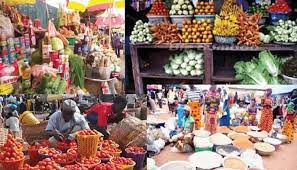By Abimbola Ogunnaike
The United States Agency for International Development (USAID) has handed down warning to Nigeria and other African countries to be ready to witness higher food prices, following recent developments that have temporarily halted Ukraine’s food exports to African countries.
USAID’s Deputy Administrator for Policy and Programming, Isobel Coleman, handed down the warning on Thursday, 3 August, 2023 at a virtual press conference.
According to her, Russia’s decision to withdraw from the Black Sea Grain Initiative had already begun to trigger higher food prices around the world.
Through the initiative, she said, Ukraine was able to export 33 million metric tonnes of food, 65 per cent of which went to developing countries, while 20 per cent went to the least developed countries.
According to Coleman, Russia’s withdrawal from the initiative, which in principle, prevented Ukraine from exporting grain to Nigeria and other developing countries, would have dire consequences of food security in these countries.
She noted the impact of this food price hike would be more felt in developing countries that were import-dependent, and had conventionally relied on grain imports from Ukraine.
“One of the world’s largest breadbaskets is Ukraine. By doing this, Russia is increasing food prices globally. We’ve already seen how global food prices came down over time after the Black Sea Grain Initiative came into place. Since Russia has pulled out of the agreement, food prices have again been on the rise.
“This affects every country around the world, but it affects, most acutely, large import-dependent developing countries that have to spend much of their precious foreign exchange resources to purchase food to feed their population.”
The Black Sea Grain Initiative was conceived to specifically allow for commercial food and fertiliser (including ammonia) exports from three key Ukrainian ports in the Black Sea, which are Odessa, Chornomorsk, Yuzhny/Pivdennyi,” she said.
The Russian invasion of Ukraine in February 2022, led to a complete halt of maritime grain shipments from Ukraine, previously a major exporter via the Black Sea. Additionally, Russia temporarily halted its grain exports, further exacerbating the situation.
This resulted in a rise in world food prices and the threat of famine in lower-income countries such as Nigeria, and accusation that Russia was weaponising food supplies.
To address the issue, discussions began in April 2022, hosted by Turkey (which controls the maritime routes from the Black Sea) and supported by the UN. The resulting agreement was signed in Istanbul in July 22, valid for a period of 120 days.
With ratification of the initiative, food prices which had increased significantly, began to decrease. However, on 17 July, 2023, the deal expired, and Russia refused to renew it on the ground that global sanctions were blocking its agricultural exports.
According to a report by United Nations Comtrade, Nigeria imported about $500m worth of grain from Ukraine in 2021; showing the termination of the Black Sea Grain Initiative inevitably spelt higher food prices.


